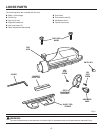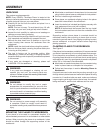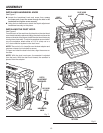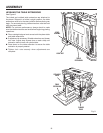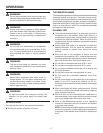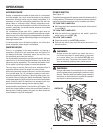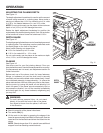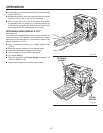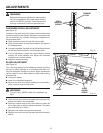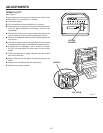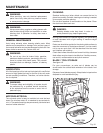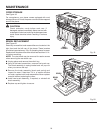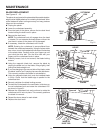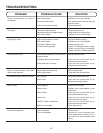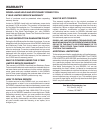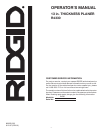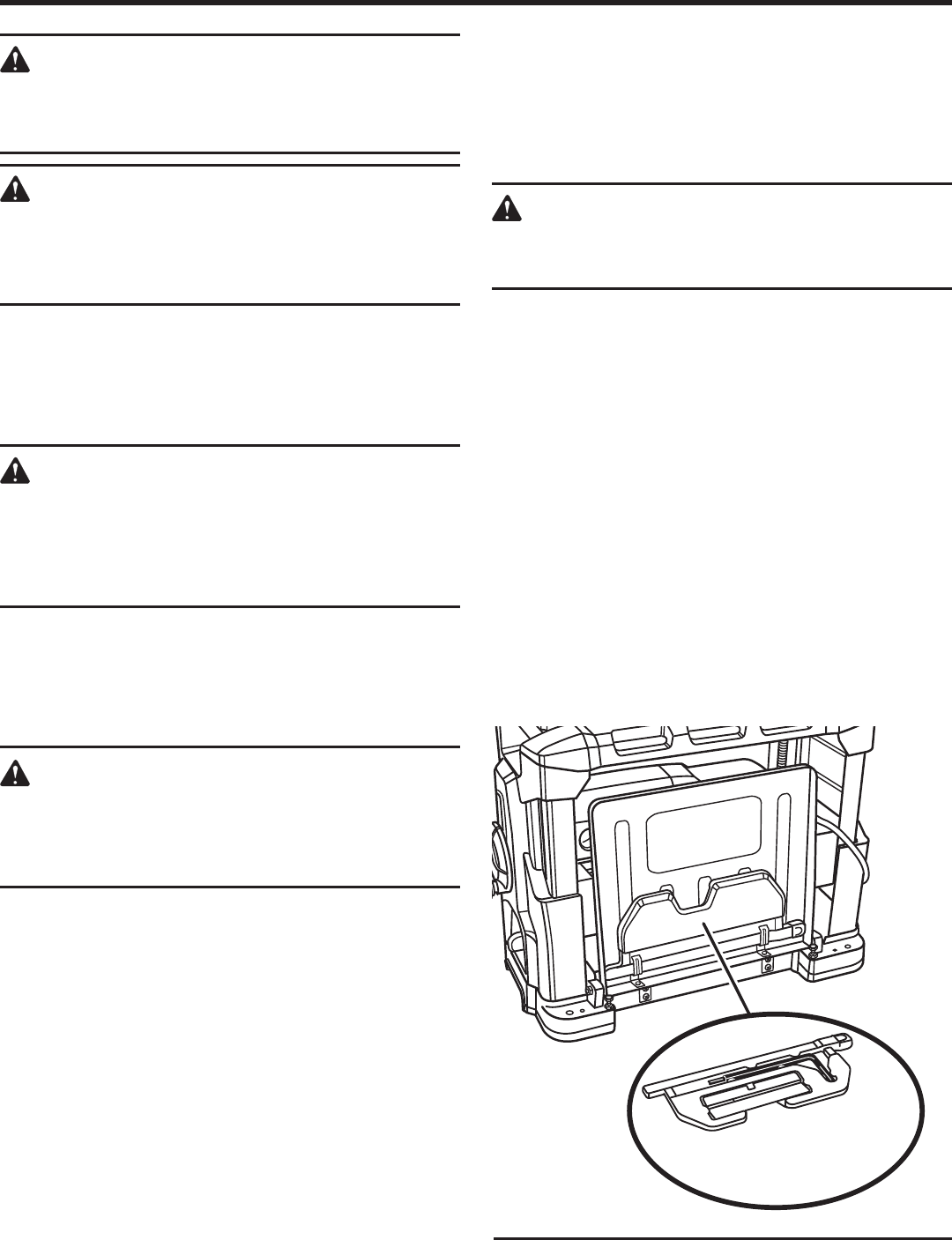
23
MAINTENANCE
WARNING:
When servicing, use only identical replacement
parts. Use of any other part may create a hazard
or cause product damage.
WARNING:
Always wear safety goggles or safety glasses with
side shields during power tool operation or when
blowing dust. If operation is dusty, also wear a
dust mask.
GENERAL MAINTENANCE
Avoid using solvents when cleaning plastic parts. Most
plastics are susceptible to damage from various types of
commercial solvents and may be damaged by their use. Use
clean cloths to remove dirt, carbon dust, etc.
WARNING:
Do not at any time let brake fluids, gasoline,
petroleum-based products, penetrating oils, etc.,
come in contact with plastic parts. They contain
chemicals that can damage, weaken, or destroy
plastic.
LUBRICATION
All of the bearings in this tool are lubricated with a sufficient
amount of high grade lubricant for the life of the unit under
normal operating conditions. Therefore, no further lubrica-
tion is required.
WARNING:
To ensure safety and reliability, all repairs should
be performed by a qualified service technician
at an authorized service center to avoid risk of
personal injury.
MOTOR/ELECTRICAL
The universal motor is easy to maintain but must be kept
clean. Do not allow water, oil, or sawdust to accumulate on
or in it. The sealed bearings are permanently lubricated and
need no further attention.
CLEANING
Sawdust buildup and other debris can cause the tool to
plane inaccurately. Periodic cleaning and waxing is needed
for accurate, precision planing.
Do not allow sawdust to accumulate on the planer. Clean
the dust hood after each use.
DANGER:
Rotating blades under dust hood. In order to
avoid personal injury, keep fingers away.
Moving parts should be cleaned regularly with penetrating
oil and lubricated with a light coating of medium-weight
machine oil.
Paste wax should be applied to the planing table surface to
ease the movement of workpieces across it, but be careful
not to use so much that it will be absorbed into the wood
and interfere with staining.
Check feed rollers after each use for resin buildup, because
feed rollers must be clean to be effective. If buildup occurs,
use a mild, nonflammable tar and pitch remover.
BLADE / TOOL STORAGE
See figure 18.
For your convenience, an extra set of blades can be
stored under the outfeed table extension in the blade / tool
storage.
Dispose of used blades properly. Wrap blades in tape before
disposal to avoid accidental injury.
Fig. 18
BlAde / tool
StorAGe



